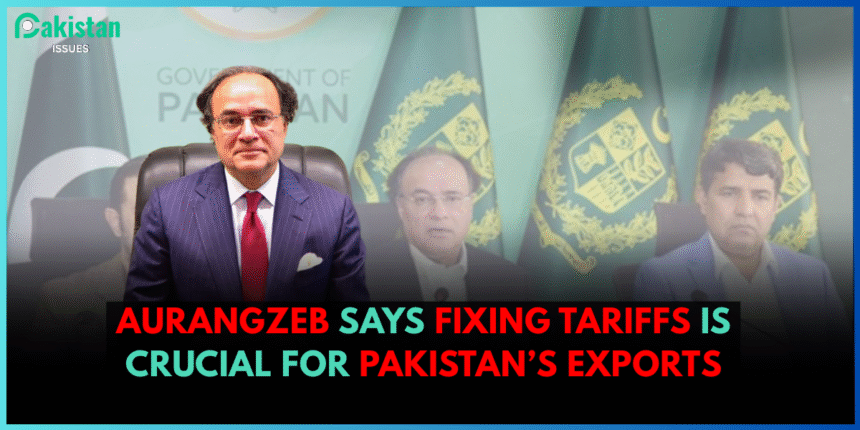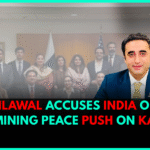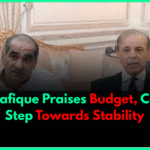ISLAMABAD: According to Finance Minister Muhammad Aurangzeb, Pakistan must reform its antiquated tariff regime if it hopes to increase exports and foreign direct investment.
Aurangzeb stated at the recent policy dialogue that high import duties are damaging local industries, particularly those relying on imported machinery and raw materials. “Our industries are competing globally and need help,” he stated. “Duties on inputs are really only holding them back.”
Trade Policy Needs a Rethink
He pointed out that tariffs are often used as a revenue tool, but this short-term thinking can do long-term damage. “We’re making it hard for businesses to grow,” the minister added. “That’s not how we build a strong economy.”
Aurangzeb said the government is now looking at ways to simplify the duty structure. This includes reviewing customs policies, lowering unnecessary taxes, and ensuring a fair playing field for exporters.
Industry Voices Concern
Many exporters have long raised concerns over tariff-related challenges. At the event, a textile exporter noted that unpredictable duties make planning very difficult. “We don’t know what the costs will be next month. It creates uncertainty,” he said.
Others shared similar views, urging the government to keep tariffs stable and industry-friendly. Several business leaders also stressed that reforms are needed not just for large exporters but also for small manufacturers.
Tied to Broader Economic Plans
These steps are part of Pakistan’s broader strategy to improve its economy under IMF-backed reforms. Officials say making trade easier and more transparent is a top priority, especially as Pakistan looks to attract global investors.
The finance minister hinted that some of these tariff changes may appear in the next federal budget. He also stressed that export-led growth is the only way forward if Pakistan wants to reduce its reliance on loans and imports.
Moving Ahead
As the economy continues to face pressure from inflation and low reserves, experts say now is the right time for bold policy shifts.
“Tariff reform isn’t just about numbers,” Aurangzeb said. “It’s about choosing the kind of economy we want to build.”










